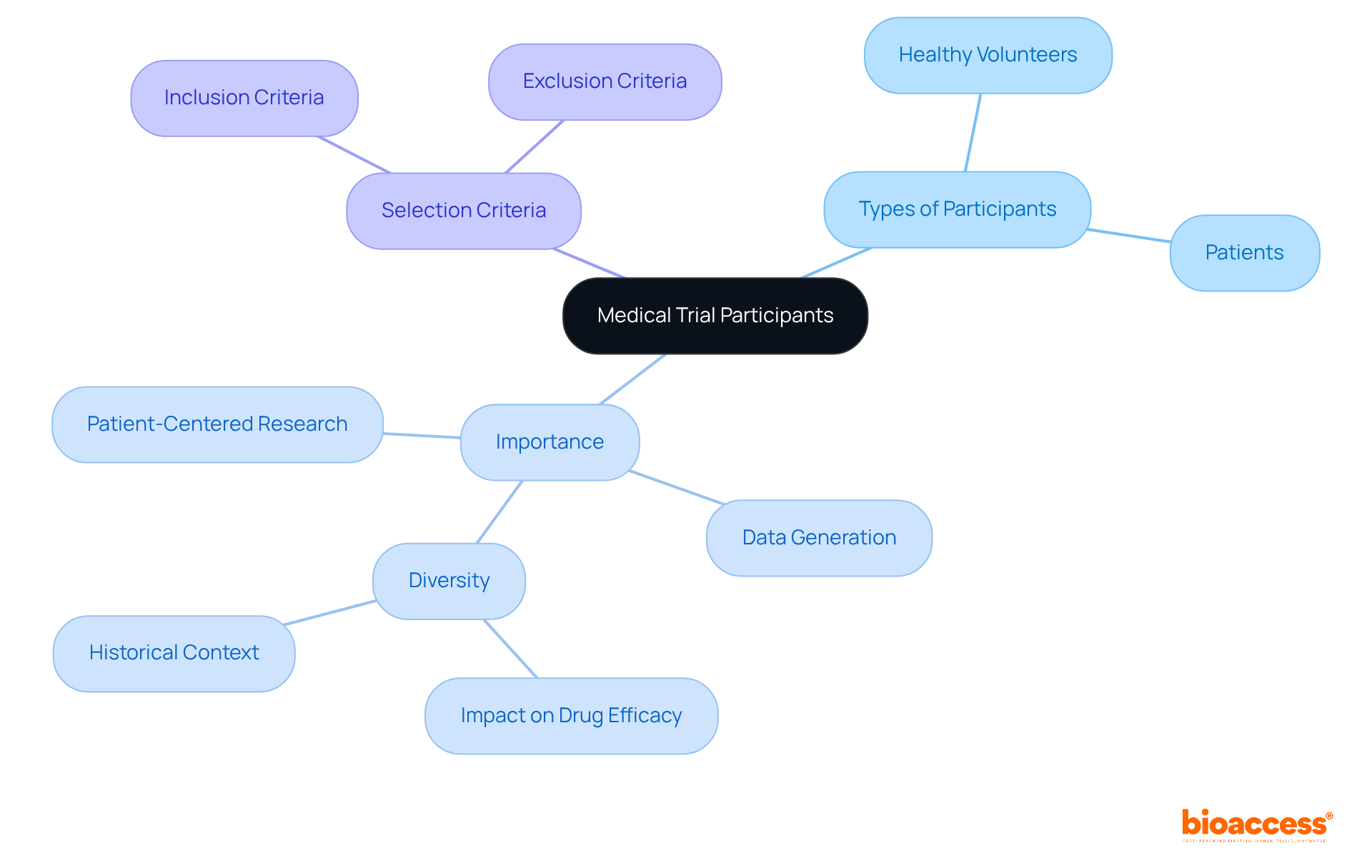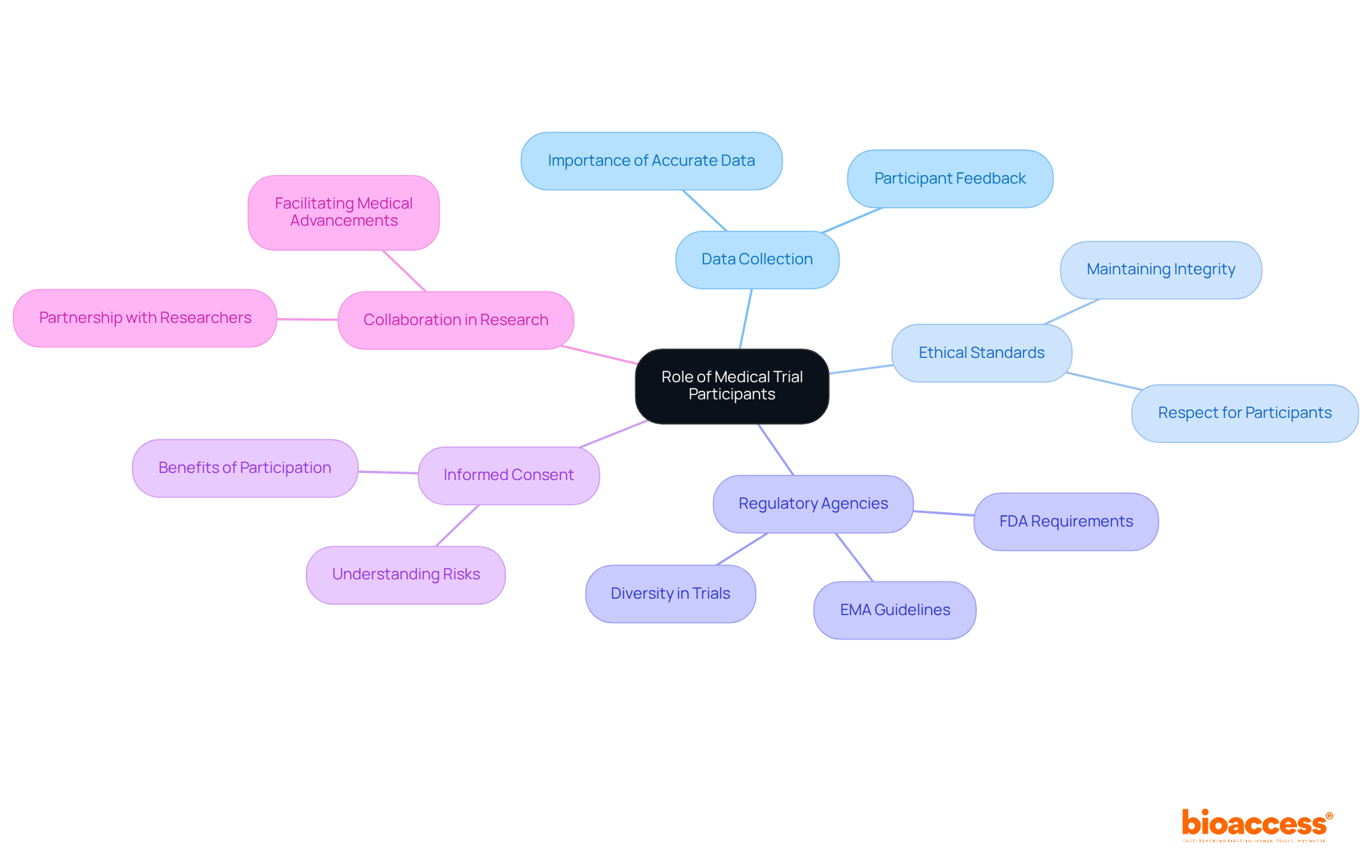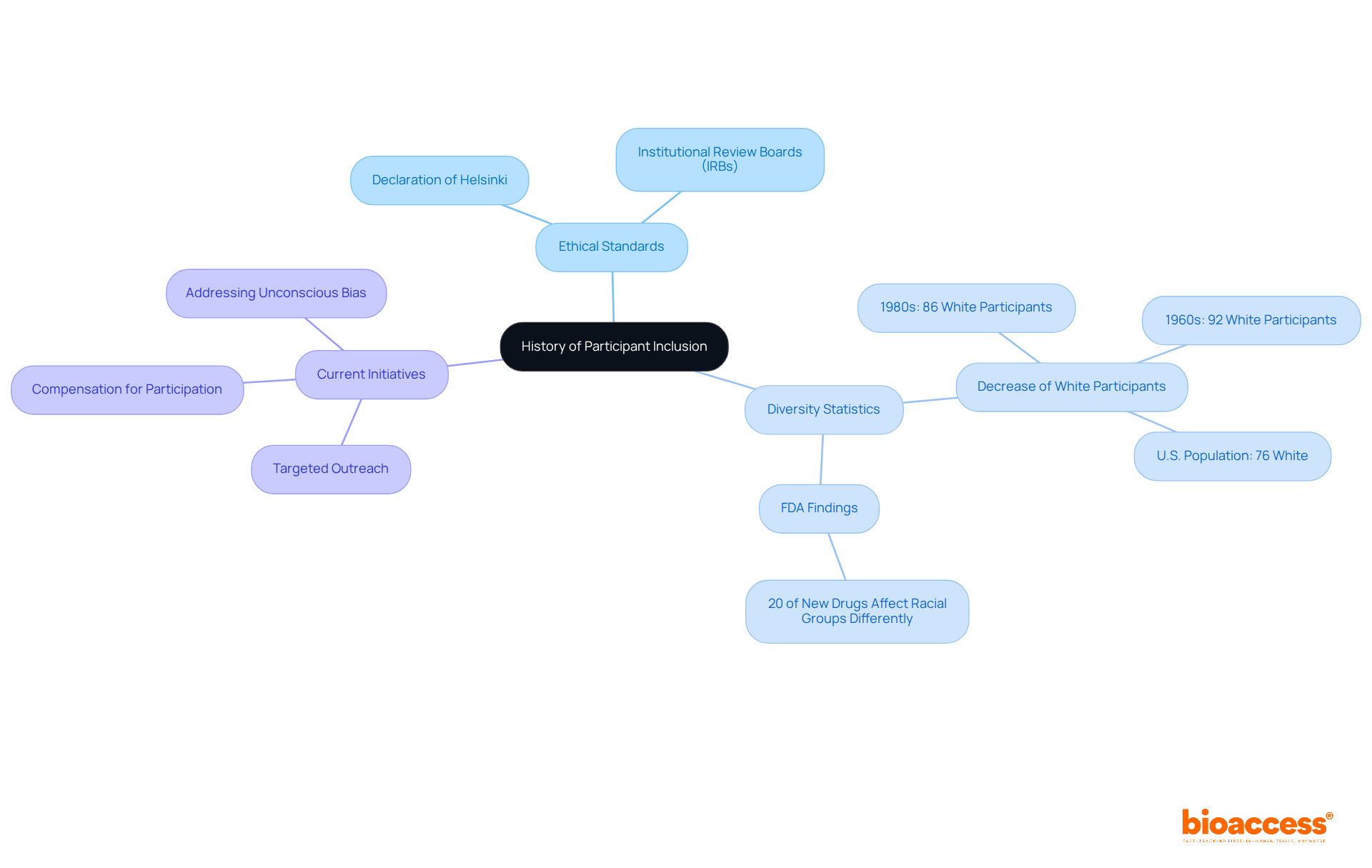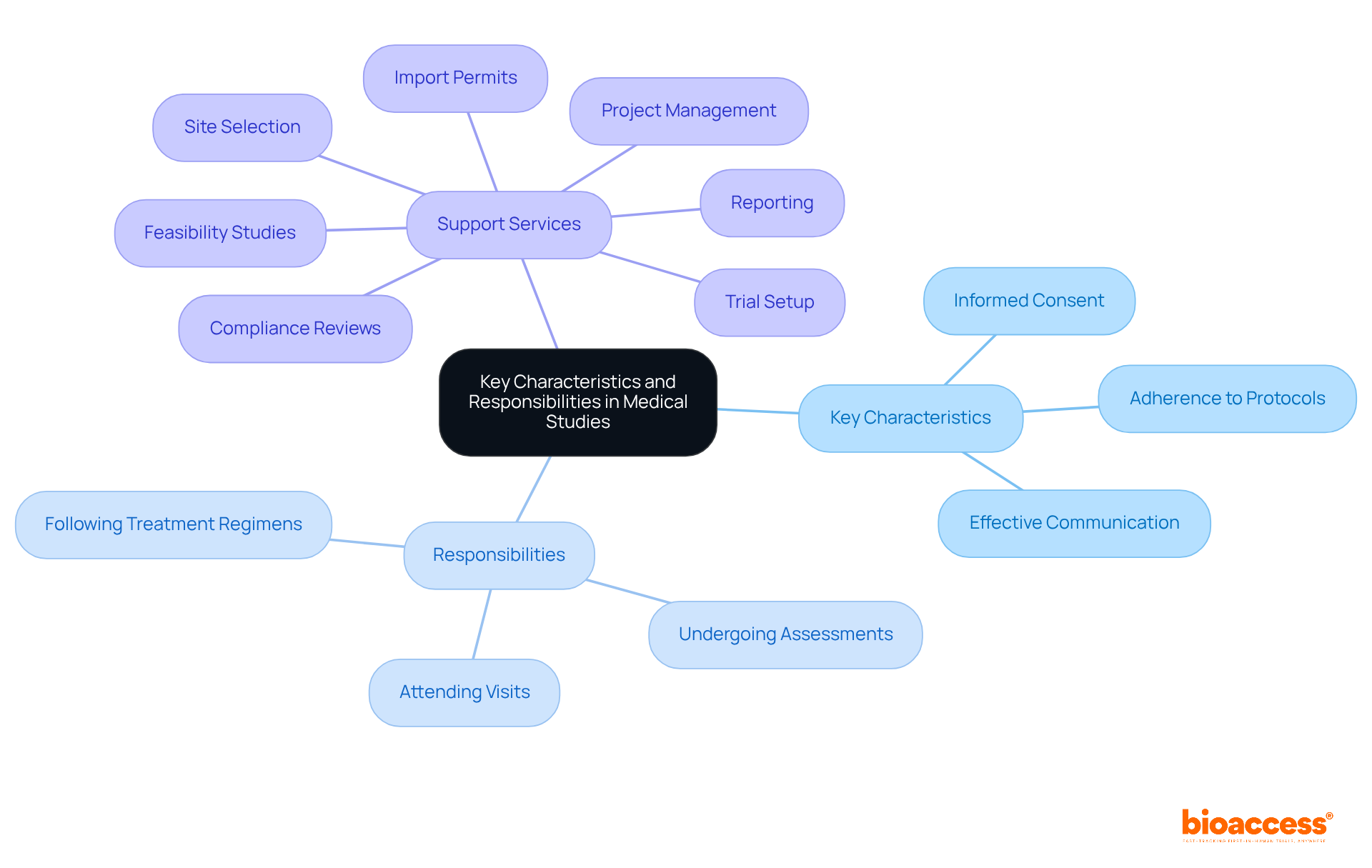


Medical trial participants play a pivotal role in clinical research, providing the essential data required to evaluate new medical interventions and ensure the safety and efficacy of treatments. The diversity of these participants is not merely beneficial; it is crucial for generating applicable research outcomes. Varied demographic responses can significantly influence the effectiveness of medications, driving advancements in patient-centered healthcare. This underscores the importance of inclusivity in clinical trials, as it enhances the reliability of research findings and fosters innovation in treatment approaches.
The landscape of medical research is intricately woven with the contributions of trial participants, whose involvement is pivotal in shaping the future of healthcare. These individuals, whether healthy volunteers or patients with specific conditions, are not merely subjects in clinical studies; they are essential partners in the quest for innovative treatments and therapies.
As we approach 2025, a pressing question emerges: how can the inclusion of diverse populations among medical trial participants enhance the validity and applicability of research findings? Exploring this dynamic reveals not only the critical role these individuals play but also the ongoing challenges and opportunities in achieving equitable representation in clinical trials.
Individuals engaged in medical studies, commonly known as subjects or volunteers, are integral to research aimed at evaluating new medical interventions, treatments, or devices. The involvement of medical trial participants is essential for generating data that propels medical knowledge forward and enhances patient care. Medical trial participants may include healthy volunteers or patients with specific medical conditions, and their contributions are critical for determining the safety and efficacy of new therapies.
As we look ahead to 2025, the landscape of clinical studies is evolving, with a pronounced emphasis on achieving a balance between healthy participants and patients. Currently, healthy volunteers constitute a significant segment of study subjects; however, the increasing recognition of the need for diverse patient groups is crucial to ensure that research outcomes are applicable to broader demographics.
The selection of individuals is governed by stringent inclusion and exclusion criteria, designed to ensure that results are valid and relevant to the target population. Expert opinions underscore that the diversity of study subjects can significantly influence research findings, as varied demographic categories may exhibit different responses to treatments. This consideration is particularly pertinent given that approximately 1 in 5 medications may affect racial and ethnic groups differently, highlighting the necessity for inclusive representation in research studies.
Furthermore, the importance of medical trial participants transcends mere data collection; their involvement is pivotal in shaping the future of healthcare. As the healthcare sector increasingly embraces the significance of patient-centered research, the role of volunteers in research studies becomes more critical than ever. Their readiness to participate not only contributes to the development of new therapies but also fosters a deeper understanding of how these interventions can be customized to address the needs of diverse populations.
Bioaccess, a leading Contract Research Organization, plays a vital role in facilitating medical device studies across Latin America. Their comprehensive research study management services include:
This holistic approach ensures that trials are conducted efficiently and ethically, ultimately benefiting both volunteers and the healthcare system.

In clinical studies, individuals serve as the cornerstone of study design and implementation. The involvement of medical trial participants is essential not only for data collection but also for maintaining ethical standards in research. Regulatory agencies, such as the FDA and EMA, mandate that trials encompass diverse subject groups to enhance the generalizability of findings. Furthermore, informed consent is a pivotal aspect of participation, ensuring individuals understand the risks and benefits associated with their engagement. Medical trial participants play a role that transcends mere participation; they are integral partners in the research process, facilitating the advancement of medical science and improving patient outcomes.

The development of medical trial participants' involvement in research studies signifies a pivotal shift towards ethical and inclusive practices in clinical research. Historically, clinical trials have often lacked diversity, leading to outcomes that fail to accurately reflect the broader population. The Declaration of Helsinki, established in 1964, has been instrumental in shaping ethical standards for medical studies, underscoring the necessity of informed consent and the welfare of participants. This landmark document has influenced the formation of Institutional Review Boards (IRBs), which ensure ethical compliance in research involving human subjects.
In recent years, the emphasis on including women, minorities, and other underrepresented groups as medical trial participants has intensified, driven by the recognition that diverse data is essential for developing effective medical treatments. For instance, an evaluation of 167 new molecular entities authorized by the FDA revealed that approximately 20% of these medications could affect racial and ethnic groups differently, highlighting the risks associated with a lack of diversity in research studies.
Statistics indicate that while the proportion of white individuals in research studies decreased to 86% by the 1980s, this still does not reflect the diversity of the U.S. population, where 76% identify as white. Continuous initiatives aimed at improving representation of medical trial participants are vital for addressing inequalities in medical studies and ensuring equitable healthcare access. Recent regulatory changes have further underscored the importance of diversity, with actionable strategies being implemented to mitigate unconscious bias and enhance outreach to medical trial participants from marginalized communities. For example, initiatives such as targeted outreach and compensation for involvement expenses are being adopted to foster inclusivity. This historical perspective underscores the ongoing journey toward more inclusive clinical practices, with upcoming events in October 2025 focused on diversity in clinical studies, further reinforcing the industry's commitment to these essential transformations.

Key characteristics of individuals involved in medical studies are crucial for the integrity of clinical research. These include:
Participants must provide precise medical histories and promptly report any adverse effects during the study. Their responsibilities extend to:
Efficient communication between contributors and researchers is essential for the success of a study, fostering trust and ensuring that issues are swiftly resolved. By fulfilling these obligations, individuals significantly enhance the integrity and validity of research results in the health field.
The extensive clinical trial management services offered by bioaccess® are designed to assist individuals in these roles. These services encompass:
This structured approach not only supports participants but also positively influences local economies through job creation, economic growth, and improved healthcare outcomes. Furthermore, it fosters international collaboration in the Medtech field, addressing key challenges and enhancing the overall landscape of clinical research. By recognizing the importance of collaboration and taking the necessary steps, stakeholders can contribute to the advancement of medical research and its impactful outcomes.

Medical trial participants are the cornerstone of clinical research, playing an essential role in advancing medical knowledge and enhancing healthcare outcomes. Their contributions extend beyond mere data collection; they are integral partners in the research process, ensuring that new therapies are safe, effective, and applicable to diverse populations. As the clinical research landscape evolves, the importance of inclusive representation among participants is increasingly evident, directly impacting the validity and generalizability of research findings.
Key insights throughout the article highlight the critical characteristics and responsibilities of medical trial participants, including:
The historical context reveals a shift towards more ethical practices, emphasizing the need for diversity in participant selection to better reflect the demographics of the population. Regulatory changes and initiatives aimed at enhancing inclusivity underscore the ongoing commitment to equitable healthcare access, making it imperative that stakeholders prioritize diverse representation in clinical trials.
The significance of medical trial participants transcends individual studies; their involvement shapes the future of healthcare and informs the development of treatments that cater to the needs of all communities. As the healthcare sector shifts towards more patient-centered research, the call to action is clear: support initiatives that foster inclusivity and recognize the invaluable contributions of trial participants. By doing so, the medical community can ensure that advancements in healthcare benefit everyone, paving the way for a more equitable and effective healthcare system.
Who are medical trial participants?
Medical trial participants, also known as subjects or volunteers, are individuals involved in medical studies to evaluate new medical interventions, treatments, or devices. Their participation is essential for generating data that advances medical knowledge and improves patient care.
What types of individuals can be medical trial participants?
Medical trial participants can include healthy volunteers or patients with specific medical conditions. Their contributions are critical for assessing the safety and efficacy of new therapies.
How is the selection of medical trial participants determined?
The selection of participants is governed by strict inclusion and exclusion criteria, which ensure that the results are valid and relevant to the target population.
Why is diversity among medical trial participants important?
Diversity is important because varied demographic groups may respond differently to treatments. Research indicates that approximately 1 in 5 medications may affect racial and ethnic groups differently, making inclusive representation in studies crucial for applicable research outcomes.
What is the significance of medical trial participants in healthcare research?
The involvement of medical trial participants is vital not only for data collection but also for shaping the future of healthcare. Their participation enhances the development of new therapies and helps tailor interventions to meet the needs of diverse populations.
What role does Bioaccess play in medical device studies?
Bioaccess, a leading Contract Research Organization, facilitates medical device studies in Latin America by providing comprehensive research study management services, including feasibility assessments, site selection, compliance evaluations, study setup, import permits, project oversight, and reporting.